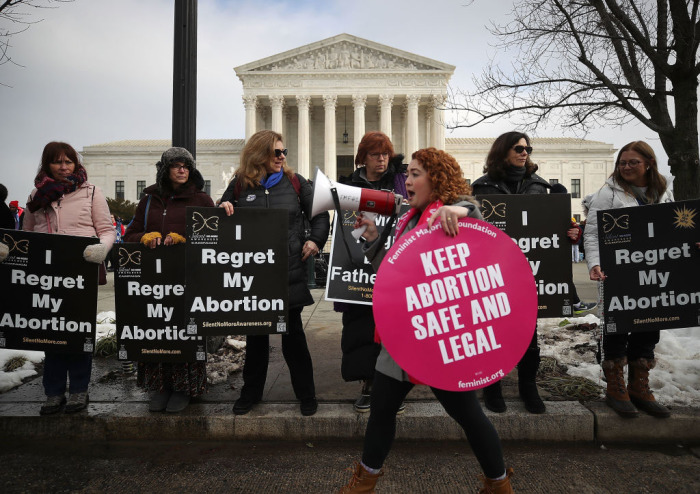Nebraska Gov. Pete Ricketts declares statewide day of prayer for Roe v. Wade anniversary

Nebraska Gov. Pete Ricketts signed a proclamation Wednesday declaring Jan. 22 a “statewide day of prayer” as abortion rights advocates prepare to celebrate the anniversary of the 1973 Roe v. Wade Supreme Court decision that legalized abortion nationwide.
“I, Pete Ricketts, Governor of the State of Nebraska, do hereby proclaim the 22nd day of January 2020 as a statewide day of prayer in Nebraska, and I do hereby urge all individuals to pray on their own or with others, according to their faith, for an end to abortion,” said a statement on the document shared on Facebook by Ricketts Wednesday. “Be it further resolved that the citizens of the Great State of Nebraska are encouraged to take direct action to aid mothers, fathers and families in need, especially those expecting a child who cannot provide for themselves.”
He also noted that since the Roe v. Wade decision, more than 50 million unborn children have been killed by abortion.
“Nebraska state law states that it is ‘the will of the people of the State of Nebraska and the members of the Legislature to provide protection for the life of the unborn child whenever possible,’” the proclamation further added. “Nebraskans display our pro-life values in a multitude of ways from the crisis pregnancy centers that provide free care for expecting parents to the prayer vigils held across the state every year.”
Ricketts signed the proclamation the same day that a group of pro-life lawmakers introduced a bill to ban dismemberment abortion, a common abortion method in Nebraska, and shortly after plans for the annual Walk for Life were announced an Omaha World-Herald report said.
Residents in Michigan are also seeking to ban dismemberment abortion and last month delivered 379,418 petitions to the state capitol in an effort to end the procedure.
Michigan Values Life submitted well above the 340,047 signatures required by state law. If enough of the petitions are certified as valid, then the legislature will have 40 days to pass the initiative.
A week ago, some 207 members of Congress — 39 senators and 168 members of the House of Representatives, representing 38 states asked the Supreme Court in an amicus brief to "reconsider" the landmark Roe v. Wade decision and the court's 1992 ruling in Planned Parenthood v. Casey, which upheld Roe v. Wade and barred states from placing an "undue burden" on access to abortions.
“With regard to June Medical’s question presented, Amici submit that while the Fifth Circuit understandably struggled with the meaning of the ‘undue burden’ standard put forth in Planned Parenthood of Se. Pa. v. Casey, 505 U.S. 833 (1992), the court appropriately distinguished Hellerstedt on a record that reflected ‘greatly dissimilar’ facts and a demonstrable absence of burden on abortion access due to the operation of Louisiana Act 620,” the congressmen argued in the brief.”
“Finally, Amici respectfully suggest that the Fifth Circuit’s struggle to define the appropriate ‘large fraction’ or determine what ‘burden’ on abortion access is ‘undue’ illustrates the unworkability of the ‘right to abortion’ found in Roe v. Wade, 410 U.S. 113 (1973) and the need for the Court to again take up the issue of whether Roe and Casey should be reconsidered and, if appropriate, overruled,” they added.
Andrea Miller, president of the National Institute for Reproductive Health, a pro-abortion group, recently told Newsweek there is now a real possibility that Roe v. Wade could be overturned but the battle for abortion rights will continue to be waged at the state level.
"The Supreme Court matters. It matters a lot," Miller said. "But it does not have the ultimate last word. No matter what the Supreme Court does, it's important to look to the states."
Several states have recently passed laws like New York’s controversial "Reproductive Health Act" which codifies federal abortion rights guaranteed under the 1973 Roe v. Wade Supreme Court decision and removes abortion from the state's criminal code.





























